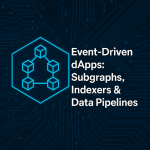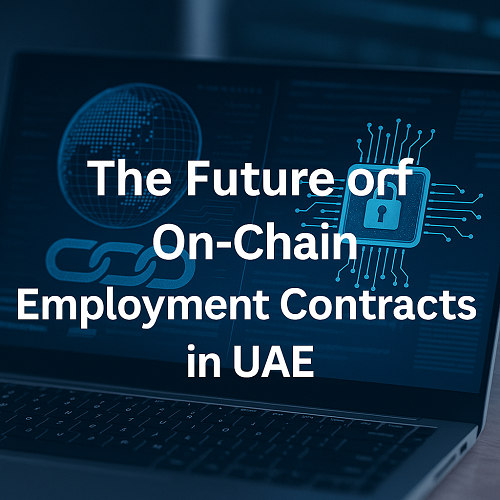Table of Contents
- Introduction
- What Are On-Chain Employment Contracts?
- Why the UAE Is Embracing Blockchain-Powered Employment
- Key Features of On-Chain Employment Contracts
- Benefits for Employers and Employees
- Challenges and Legal Considerations
- Future Outlook: Blockchain in the UAE Job Market
- FAQs
- Conclusion
- Partner with Websima
Introduction
The UAE has positioned itself as a global hub for blockchain innovation, shaping the way governments, businesses, and individuals interact in the digital economy. Among the emerging trends transforming the corporate landscape are on-chain employment contracts — blockchain-powered agreements that automate terms of employment, payroll, benefits, and compliance.
With Dubai’s Blockchain Strategy 2030, Abu Dhabi’s ambitious digital transformation goals, the country is building a Web3-ready workforce ecosystem. For employers, on-chain contracts promise lower administrative costs, seamless cross-border payroll, and improved compliance. For employees, they enable transparent payments, streamlined benefits, and greater job mobility in a rapidly digitalizing market.
BREAKING: #Dubai has officially approved the use of $XRP, #Bitcoin and other #crypto for salary payments. pic.twitter.com/Kgf5yzJM8R
— Armando Pantoja (@_TallGuyTycoon) August 17, 2024
What Are On-Chain Employment Contracts?

On-chain employment contracts are digitally executed agreements stored on a blockchain network and powered by smart contracts. Unlike traditional contracts, which require manual handling, these automate:
- Salary payouts based on milestones or time worked
- Benefits distribution, like bonuses, insurance, and leave
- Visa and compliance checks integrated with MOHRE and DLD systems
- Employment record-keeping on tamper-proof ledgers
Example: An Abu Dhabi tech startup could create an on-chain contract where an employee’s monthly salary and medical benefits are released automatically when predefined performance metrics are met — eliminating delays and administrative friction.
Why the UAE Is Embracing Blockchain-Powered Employment
The UAE’s pro-blockchain stance has created fertile ground for innovations like on-chain employment contracts:
- Government Vision: The Dubai Blockchain Strategy aims to digitize 50% of government transactions.
- HR Modernization: The rise of remote and hybrid workforces has accelerated the need for decentralized HR ecosystems.
- Cross-Border Payments: With 90% of UAE’s workforce being expatriates, automated on-chain payroll enables fast, low-cost, and borderless settlements.
- Regulatory Readiness: Initiatives like the Abu Dhabi Digital Authority are developing frameworks for blockchain-enabled services.
Key Features of On-Chain Employment Contracts

Automated Payroll
Salaries are triggered automatically via smart contracts upon meeting contractual milestones. This ensures on-time and accurate payments.
Smart Benefits Management
Bonuses, insurance claims, and paid leave entitlements are coded directly into the contract — reducing HR overhead.
Immutable Employment Records
Employment history, updates, and amendments are permanently stored on the blockchain, ensuring tamper-proof compliance, which highlights the importance of AI and Blockchain in fraud detection in UAE.
Integration with Government Systems
Smart contracts can connect with MOHRE, GOSI, and other government databases for seamless visa management and tax reporting.
Benefits for Employers and Employees
For Employers
- Cost Savings: Eliminates repetitive paperwork and automates compliance.
- Global Talent Acquisition: Simplifies cross-border hiring and multicurrency payroll.
- Faster Dispute Resolution: With immutable records, contractual disputes are resolved quicker.
For Employees
- Payment Security: Guaranteed on-time payroll without manual intervention.
- Transparency: Employees can verify all entitlements directly on-chain.
- Mobility: Easier transitions between employers while maintaining a verifiable employment record.
Challenges and Legal Considerations
Despite the opportunities, challenges remain:
- Legal Recognition: Current UAE labour laws still require traditional documentation for enforcement.
- Data Privacy: On-chain records must comply with the UAE’s Personal Data Protection Law (PDPL).
- Integration Complexity: Legacy HR systems need upgrades to support blockchain-based workflows.
The UAE is addressing these challenges via pilot programs and regulatory sandboxes to ensure a smooth transition.
Future Outlook: Blockchain in the UAE Job Market
The UAE’s Web3-focused strategy is shaping the future of work:
- AI + Blockchain Integration: Combining predictive analytics with on-chain contracts for performance-based payroll.
- Decentralized Digital IDs: Employees will soon authenticate work history via blockchain-based credentials.
- CBDC-Linked Salaries: The UAE’s Digital Dirham initiative will make instant cross-border salary settlements a reality.
According to PwC’s Time for Trust analysis, blockchain could contribute ~US$1.76 trillion to global GDP by 2030, with the UAE expected to be among the leaders driving this growth.
Read the PwC press release or explore the full PwC blockchain report.
FAQs
Are on-chain employment contracts legal in the UAE?
Not yet, but regulatory frameworks are evolving. Dubai and Abu Dhabi are testing blockchain regulatory sandboxes that could soon give smart contracts legal recognition, especially in HR and payroll systems.
Can salaries be paid in crypto through these contracts?
Yes, but under strict Central Bank guidelines. Employers can integrate stablecoins or UAE-approved CBDCs like the Digital Dirham, ensuring regulatory compliance.
How do on-chain contracts benefit freelancers?
Freelancers gain faster milestone-based payments, secure digital agreements, and cross-border payroll without delays. This opens global job markets to UAE-based Web3 professionals.
Will these contracts replace HR departments?
No. They will streamline HR operations by automating repetitive tasks like payroll, benefits management, and compliance tracking. HR teams will focus more on strategic workforce development.
What are the data security risks?
Blockchain ensures tamper-proof records, but data must still comply with the UAE PDPL. Hybrid solutions combining on-chain verification with off-chain storage are expected to dominate.
Conclusion
Onchain employment contracts UAE mark a revolutionary shift in workforce management. By merging automation, compliance, and transparency, they redefine the employer-employee relationship.
For employers, these contracts streamline HR workflows, simplify cross-border payroll, and enhance talent acquisition. For employees, they ensure on-time payments, clear entitlement visibility, and verifiable work histories.
Backed by the UAE’s Blockchain Strategy 2030 and the anticipated Digital Dirham, the move toward smart HR ecosystems is inevitable. On-chain contracts won’t just modernize HR — they’ll make the UAE a global leader in blockchain-driven employment innovation.
Partner with Websima
At Websima, we help businesses transform HR systems with on-chain employment solutions.
Our services include:
- Custom Smart Contract Development for employment agreements
- Blockchain-Powered Payroll Systems with cross-border capability
- Decentralized Identity Integration for secure employee verification
- Web3-ready HR consulting tailored to UAE’s evolving regulations
Stay ahead in Dubai’s blockchain-powered job market.
Contact Websima today and future-proof your workforce.





